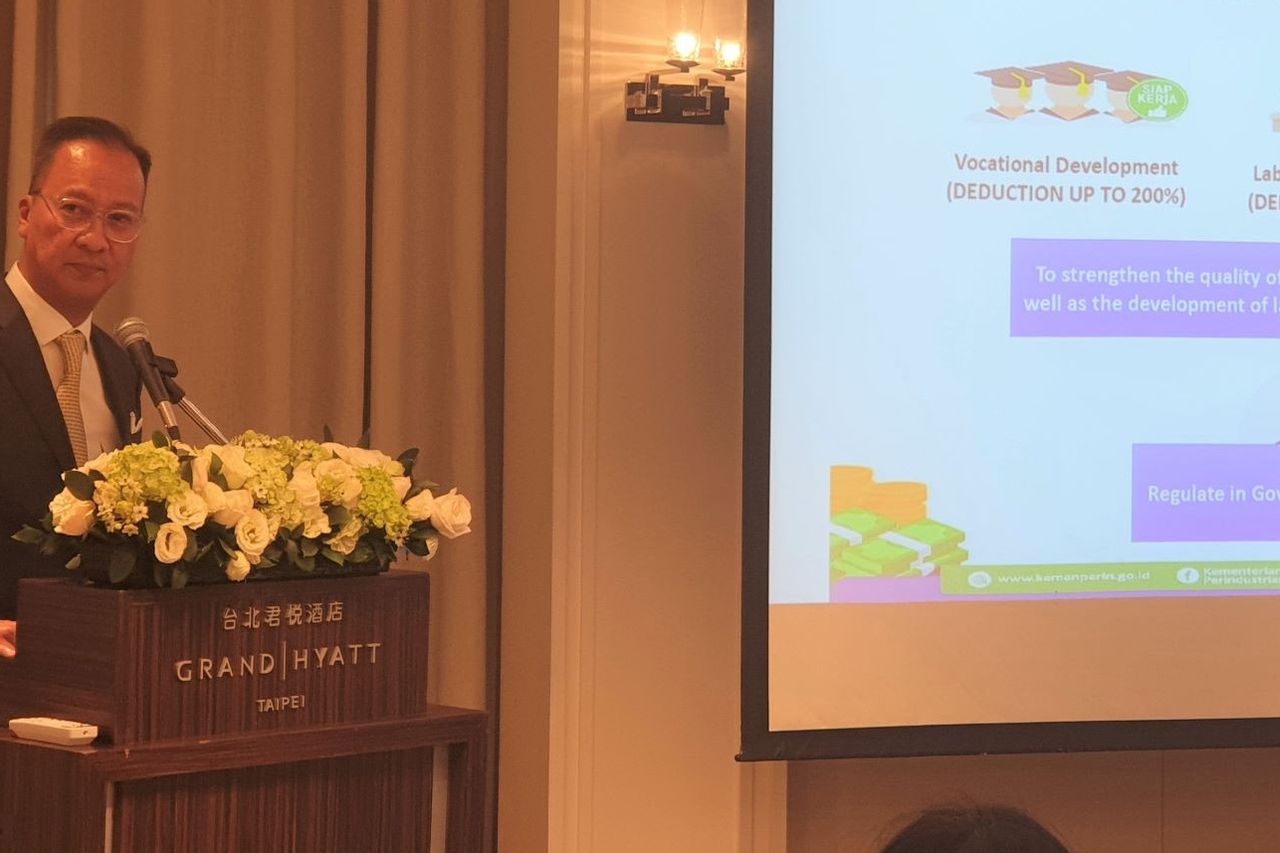The Minister Of Industry's Invitation To Taiwan To Invest In The Automotive Sector

JAKARTA - The Ministry of Industry targets Indonesia to become a hub or center for the development of electric vehicle production in the ASEAN region by 2030. This is supported, among other things, by a very large market potential.
"Therefore, one of the government's focuses is to formulate and issue policies that support these targets. We hope that there are Taiwanese industry players who are interested in investing in the automotive sector, ”said Industry Minister Agus Gumiwang Kartasasmita in Jakarta, Monday, December 23.
On Friday Desemner 2019, the Minister of Industry attended the Luncheon Meeting with CEOs from companies in Taiwan. "The Indonesian government opens the door to investors who want to enter Indonesia to grow the manufacturing industry, including the automotive sector," he said.
This step is to strengthen the domestic industrial structure, starting from the upstream to downstream sectors. In addition, in order to increase productivity, the ratio of car ownership in Indonesia needs to be boosted. Referring to data from the Association of Indonesian Automotive Industries (Gaikindo), the ratio of car ownership in Indonesia is only around 87 units per 1,000 people, still low below neighboring countries such as Malaysia, which reached 450 units per 1,000 people and Thailand with 220 units per 1,000 people.
Minister of Industry Agus assessed that the prospect of car sales in Indonesia is still very promising. This is because if one unit increases from 87 to 88 units, it means that sales will increase by around 260 thousand units. "With a population of 260 million people, the room to grow for this industry is huge," he said.
Moreover, based on the road map for Making Indonesia 4.0, the auto industry is one of the five manufacturing sectors that have priority development, especially to be ready to implement industry 4.0. "So, the automotive industry is part of the locomotive of the domestic manufacturing sector, which will boost national GDP to become the top 10 in the world by 2030," he added.
The Minister of Industry added that the government is also targeting about 20 percent of the total national production or as much as 2 million units in 2025 to be electric motorbikes. In addition, Indonesia is targeting the production of electrically powered cars to reach 400 thousand units or 20 percent of the total production in 2025. From this number, it is expected that there will be an increase until 2029.
The target of increasing the production of electric vehicles in the country has been supported by the issuance of Presidential Regulation Number 55 of 2019 concerning the Acceleration of the Battery-Based Electric Motor Vehicle Program. "Presidential Decree No. 55/2019 mandates the regulation of the use of the Domestic Component Level (TKDN) of Battery-Based Electric Motorized Vehicles (KBL) including electric motorbikes to increase the added value of the domestic industry, "said Agus.
For this reason, the government invites the automotive component and supporting industries to jointly prepare themselves to enter the era of electric vehicles and other environmentally friendly vehicle technologies through increasing human resources and industrial management, as well as increasing technological mastery through Research and Development (R&D) and design activities.
"With this regulation, the acceleration of the program is regulated in detail, starting from R & D, TKDN, to the incentives that will be provided," he said.
Of course, this is a new opportunity for the domestic manufacturing and component industry to start R&D activities and design of electric vehicles and their main supporting components. Because in 2025, the government is targeting 100 percent local content in Indonesian automotive products.
In line with that, the government has issued Government Regulation Number 45 of 2019 concerning Amendments to Government Regulation Number 94 of 2010 concerning Calculation of Taxable Income and Payment of Income Tax in the Current Year. In this regulation, one of which regulates the provision of fiscal incentives in the form of super deduction taxes for companies that carry out research and vocational activities by obtaining a reduction in gross income of up to 200-300 percent.
"This is something extraordinary, hopefully the producers can make good use of the government's policy. For principals who have no production activities here, I think this is the right moment to invest in Indonesia, "he explained.
